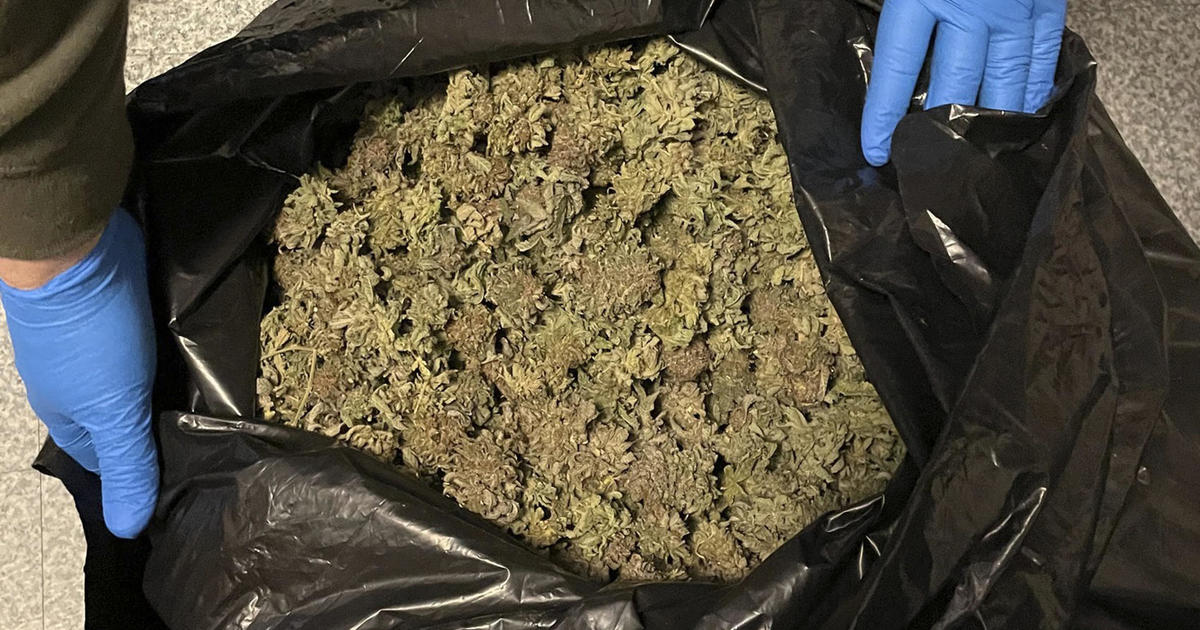Barr announces over $10 million to fund law enforcement crisis in rural Alaska
To address Alaska's increasingly dire public safety needs, the Justice Department announced Friday that it will be providing the state with over $10 million in funding -- just under a month after Attorney General William Barr visited Alaska in his first major trip as the nation's top law enforcement official.
Alaska, which is over twice the size of Texas but has under 750,000 residents, has the highest crime rate per capita of any state in the U.S., according to the Justice Department. The Anchorage Daily News and ProPublica found in an investigation that a third of Alaskan villages lack a local law enforcement presence, while the rates of crimes like sexual assault are about three times the national average.
"Someone asked me, 'Why are you here? Why did you pick Alaska?' And it's because, to me, my job is to go where the need is greatest, and I think the need is greatest here," Barr told CBS News' Jan Crawford in an interview earlier this month.
"These are people that are just asking for the basic physical security, and it's not much to ask," Barr said.
Now, the attorney general has declared a law enforcement emergency for the nation's 49th state, making $6 million in emergency funding immediately available under the Federal Law Enforcement Assistance Program to support law enforcement efforts in Native Alaskan villages. That money will help hire, equip, and train local law enforcement organizations, including Village Public Safety Officers, Village Police Officers and Tribal Police Officers.
"Criminal Justice in our communities is really an issue," Richard Peterson, of the Central Council of the Tlingit and Haida Indian Tribes of Alaska, said during a roundtable discussion with the attorney general in May. He and other council members talked with Barr about the unique public safety challenges many Native Alaskan's face, and how common it is for crimes like murder to go unsolved.
"If a moose gets shot out of season, in three hours three wildlife law enforcement folks will be there. A young Tlingit girl is murdered and it can take 19 hours. There's a true disparity there, and that's a reality."
Katie Sullivan, the head of the DOJ's Office of Justice Programs, called the announcement an "exciting" moment for the department.
"Many of these rural communities, villages, there isn't a road, I mean there's nothing." Sullivan tried to describe the situation, using the example of a potential domestic violence or sexual assault, "Because of the geography, your state trooper may be up to two days away." There's issues of reporting the crime, preserving the evidence, and helping victims get out of their situation.
Native Alaskan communities, made up of 229 total tribes, are among the most vulnerable populations because of the unique geographical challenges within the state. That's why the department is allocating $4.5 million to fund the positions, equipment and training of 20 police officers to Alaskan Native grantees.
"With this emergency declaration, I am directing resources where they are needed most and needed immediately, to support the local law enforcement response in Alaska Native communities, whose people are dealing with extremely high rates of violence," Barr said in a statement on Friday.
During his visit to the state, Barr went to a women's shelter in southwest Alaska, and one of its staff members told him how the lack of resources affected the shelter, saying, "It's a common thing to be over capacity. So, we've got people staying in the living room and in our playroom."
To combat the high incidence of domestic violence in the state, Barr also unveiled the new Rural Alaska Violent Crime Reduction Working Group, which will focus on curbing domestic violence and crimes against children in rural communities.
The working group will be led by U.S. Attorney for Alaska Bryan Schroder and will also draw upon the efforts of federal, state and tribal law enforcement. An additional $162,000 in funding has been made available to Schroder's office to create another Project Safe Neighborhoods site.
"We will put together with certainly all the federal partners, the state partners. I think we'll have input certainly from the native groups up there about what we can do to try to take a longer term look at the needs," Schroder said of the group.
The attorney general will also be requiring every law enforcement component and agency in the state to submit a plan in the next month to improve Alaskan public safety. The plans must prioritize reducing sexual assaults, combating the influx of opioids and other illicit drugs into the state, and developing solutions to improve the response times of law enforcement to remote areas.



